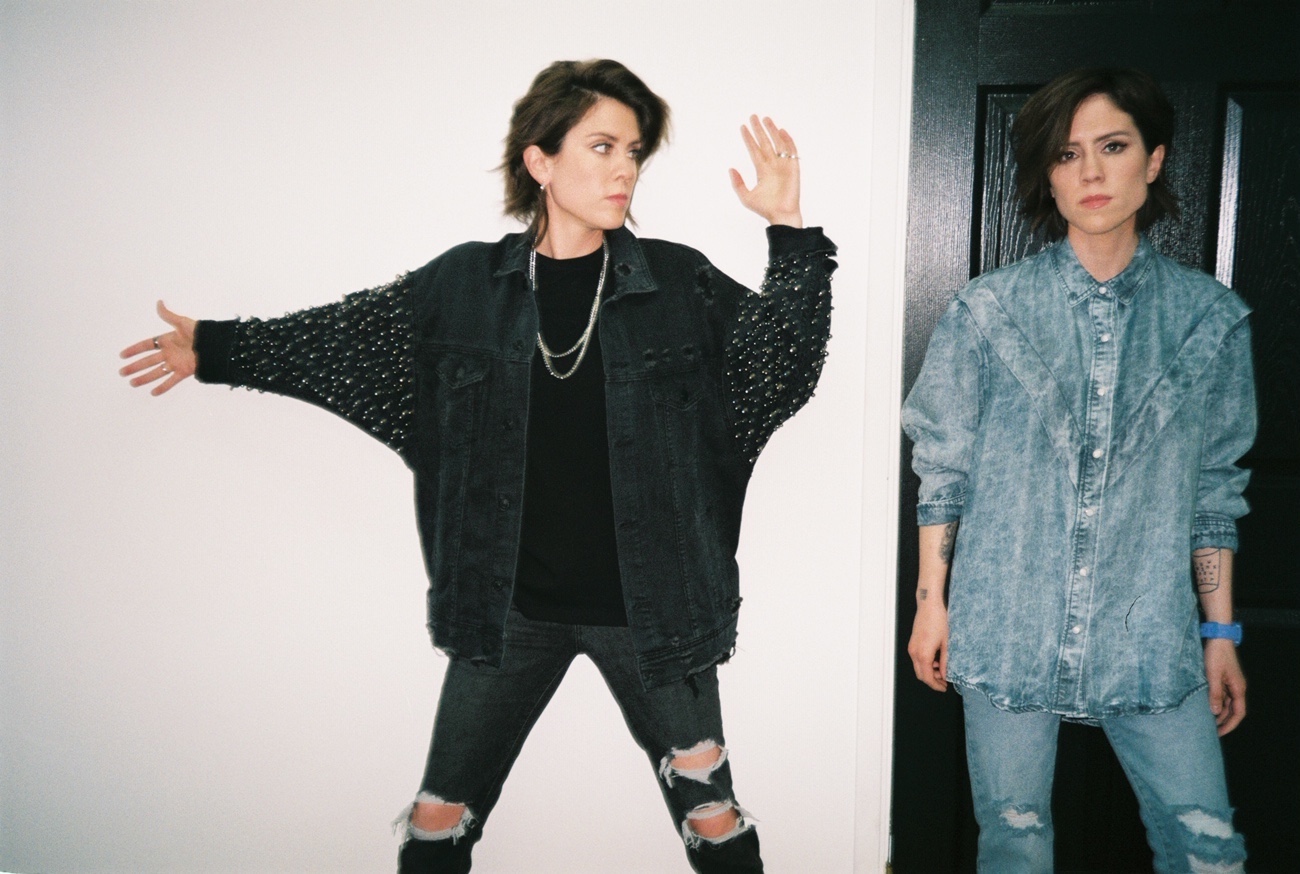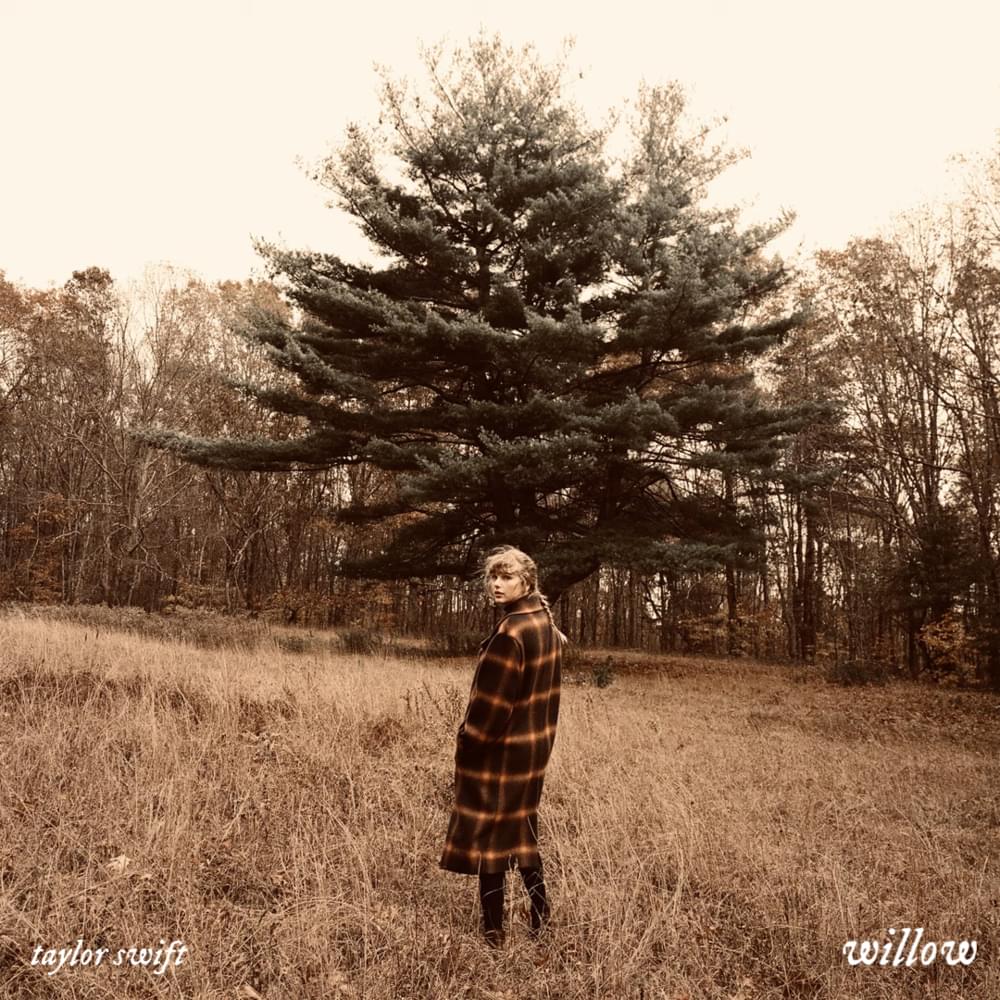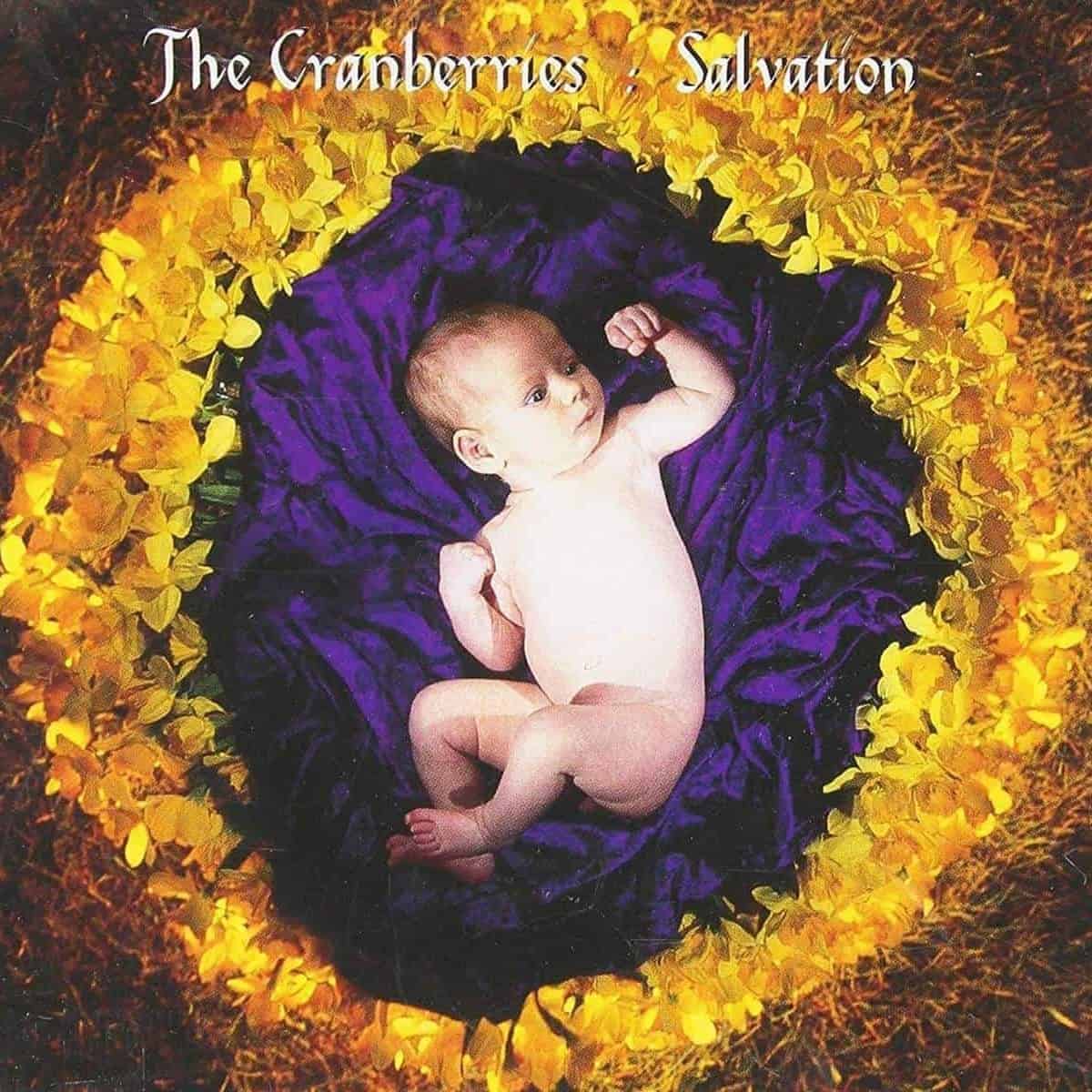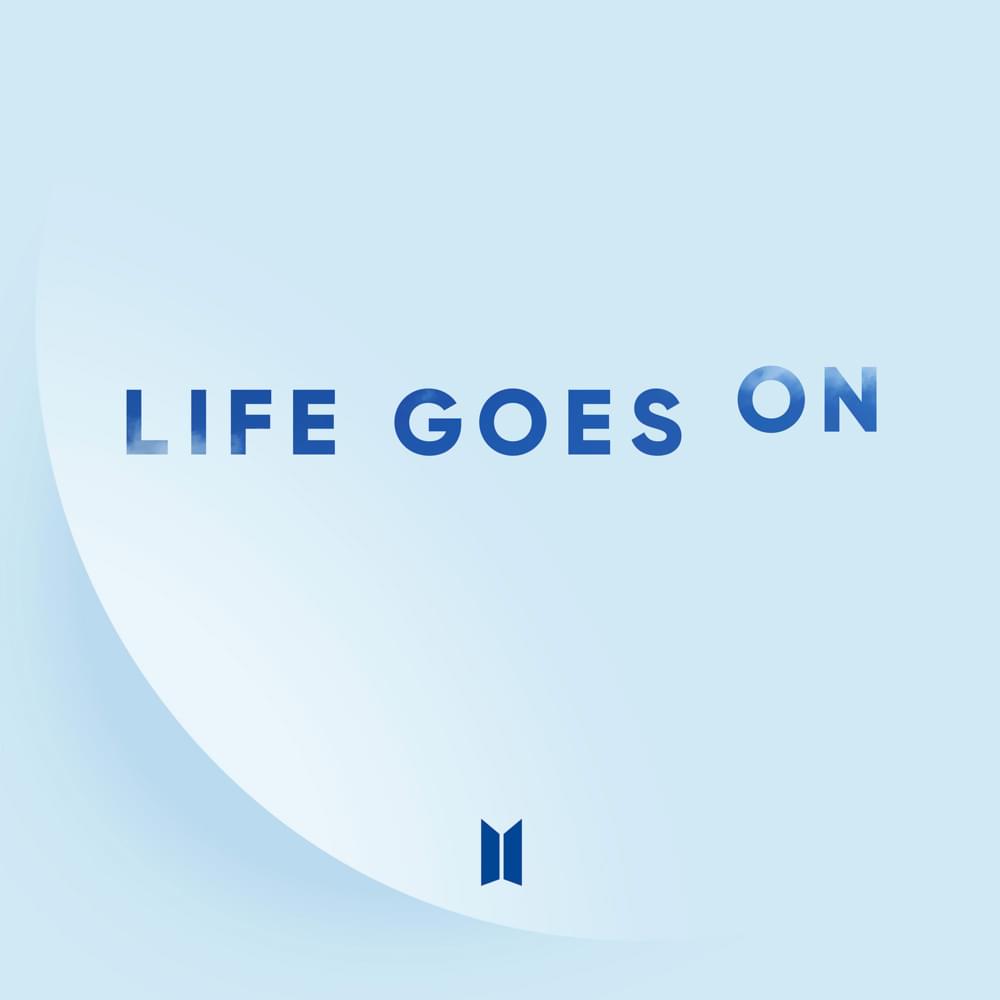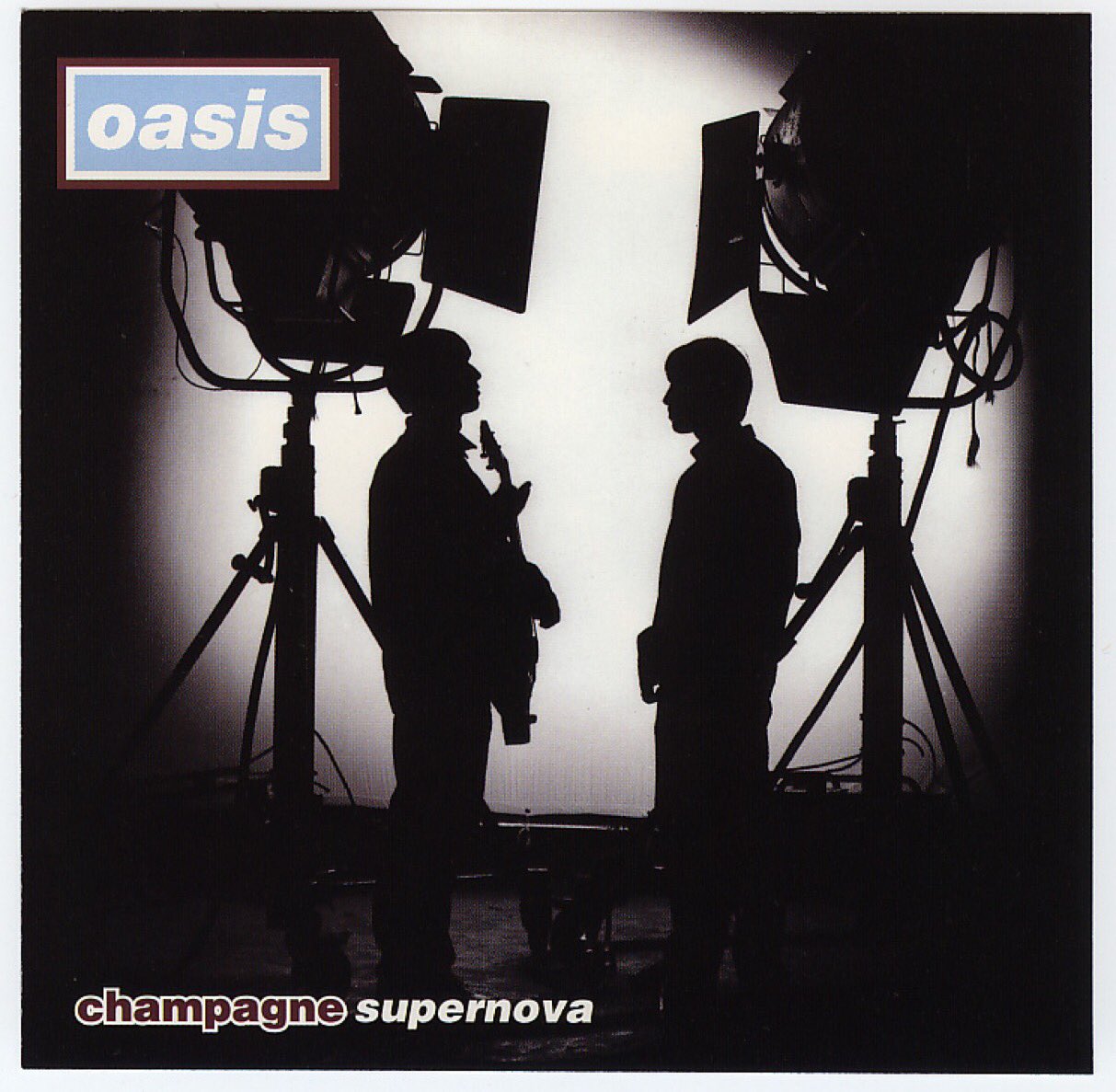The day after Thanksgiving, my mom drove me and two friends to a theater just outside Philadelphia so that we could see Tegan And Sara for the first time. It was a few months after they released The Con, and I was 14, deeply obnoxious and deeply uncomfortable with myself. But my friends and I bought t-shirts at the show, put them on over what we were wearing, and felt at home. My mom sat a few rows back, a respectable distance away. The show itself remains a giddy blur, but I do remember what the room felt like: couples holding hands, embracing, offering up pecks to each other in between songs. It was the first space I had ever been in where there weren't a lot of straight people around, the first time I saw how casual and normal queer love could be. That space was facilitated by two performers who felt as open and honest with their audience as we were with them.
A similar scene plays out in Tegan And Sara's new memoir, High School, which comes out this week. The sisters go with their friends to a Green Day concert, and they feel the same sort of awe, inspired by and feeding off the energy of a room. A Green Day show in their prime was, of course, a lot different than a Tegan And Sara show in their prime, but that breathless wonder is just the same. "Standing just a few feet from where Billie Joe was snarling and tearing at the strings of his guitar, a guitar hanging so low it forced him forward into a nearly ninety-degree angle, I felt star struck, overwhelmed, consumed," Tegan writes. They had the illusion of independence -- their mom still picked them up after the show, asking how it was on the car ride home -- but that freedom matters so much at that age. An experience like that stays with you forever, shapes who you are and who you want to be.
I was just a little bit younger than the Quin twins are when we first meet them in High School. Tegan And Sara's career has always been based around recognition, and High School is a familiar story to anyone that grew up confused about their sexuality and their place in the world. Much like myself, they spent their teenage years discovering that the fire they felt inside wasn't unique but universal. "I grew up convinced that what I felt wasn't just inside me," Tegan writes at one point. "I was sure I wasn't the only one who felt this way." She's talking about a mutual crush in that moment, but it's also an apt way to characterize what Tegan And Sara's music means to so many people -- an outward beacon of an internal feeling.
It would take a while for them to channel those feelings into music, though, and High School is only a little bit about what it would take for them to become Tegan And Sara, the musicians. But it's a crystal-clear document of what it took for them to become Tegan And Sara, the people, and what's so remarkable about the twins in this book is just how unremarkable they are. They're normal teens doing normal teen things. They do drugs, they go to raves, have fights, fall in love. They have secret girlfriends and unsatisfying boyfriends. They could be occasionally mean and irrational, as most teens are, but they also have moments of adult clarity, hints of who they would eventually become. It's a traditional coming-of-age saga, played out on the streets of the decently-sized Canadian city of Calgary, which the Quins render as your typical suburb, filled with raucous parties at friend's houses and the persistent buzz of needing to escape your hometown.
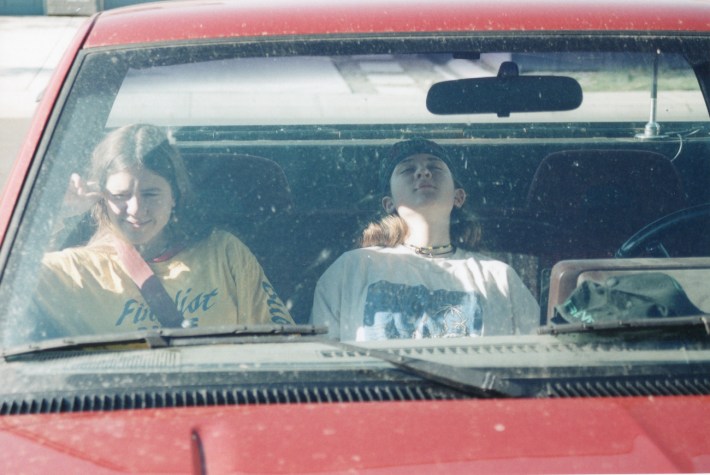
And, yeah, it's also about their music, but that was just one aspect of their lives at that point. They were regular angsty '90s teens, obsessed with Nirvana and Smashing Pumpkins and Hole, and their earliest music was influenced by all of those bands. The book chronicles, slowly, in between scenes of heartbreak and teenage betrayal, how music came to mean more and more to the twins, how eventually it was the only outlet to express what they were feeling. By the end of High School, the only way they could process emotions was by putting them to music. "In my bedroom I sat cross-legged on the carpet with my guitar and began to work on a new song," Sara writes in one of the book's final chapters. "It was the only thing I knew how to do to make myself feel better."
Naturally, there's a rush to seeing how Tegan And Sara eventually became Tegan And Sara -- their first songs coalescing in their bedrooms, performing for their friends, recording their first demo as part of their school's Broadcasting And Communications class, the Garage Warz talent competition that launched them into the Canadian eye --but what I was most struck by while reading High School was everything that was happening on the periphery and how deftly it was told. Artist memoirs can often be awkwardly laid out, a jumble of thoughts and ideas with no real throughline, but both Sara and Tegan have their voices nailed down. It's clear they want to legitimize their high school experiences by writing them out, show how normal but pivotal the act of growing up can be, whether you went on to become famous musicians or not.
The specifics of an experience often get lost when translating them into a song, and High School tracks several early Tegan And Sara songs through their development, from the situations and people they sprung out of to their finished product. Complicated emotions are often sanded down to a catchy refrain, and High School manages to give several songs more context because it provides a window into the people and the environment that created them. Many of those songs are included on their new album, Hey, I'm Just Like You, which is also out this week. Its title, and the song that shares it (originally circulated as the demo "Plunk Song"), is another indicator of just how much Tegan And Sara's career has been shaped by recognition: "Hey, I'm just like you/ A little messed up and blue," they sing on it. "Hey, I'm just like you/ Not sure what the fuck I'm to do."
[videoembed size="full_width" alignment="center"][/videoembed]
The 12 songs on the album were culled from dozens that Tegan And Sara found on cassette tapes that they made during high school. They then re-jiggered many of them and re-recorded all of them, processing them through the poppier sound that the band has adopted over the last few albums. It's honestly a bit of a mixed bag, best engaged with as a supplement to the memoir than an album that stands on its own. The songs that don't work often come down to the fact that they were written so long ago; the duo often apply a bit too much sheen to painfully awkward lyrics, ones that might have gone down a little better if they were buried under the fuzz of inexperience that presumably hid them in demo form.
But the intentionality behind Hey, I'm Just Like You is sound, finding situations to relate to and connections with the art that you made two decades ago. It's another validation of the emotions that one goes through in high school, and an indication of how they can stay with you even as you grow older. "All I have to give this world is me and that's it," they sing on the album's final track. It's a corny sentiment, but the sisters sell it. They closed out their first-ever set with that song, an experience detailed in the book, and it feels like coming full circle when the track shows up at the end of the album.
It's clear from that very first performance on their own that they already had a handle on what makes them so special as musicians, even if they didn't necessarily realize it then. Their in-between song banter, which has long been a staple of their live shows, was already forming at that Garage Warz set, then as a deflection tactic against the awkwardness of being underage teenagers performing at a college-geared music competition, and much later as a way to connect with their audience, meet them on the same level. I don't remember too much from that first show of theirs I saw, but I do remember their presence: They felt like friends, which is an odd thing to say about public figures, but they're always cultivated that sense of closeness. High School only emphasizes that connection they share with their audience, that feeling that if they've gotten through it then you can, too. Hey, I'm just like them after all.
Tegan And Sara's memoir, High School, is out 9/24, and their album, Hey, I'm Just Like You, is out 9/27. Order both here.
